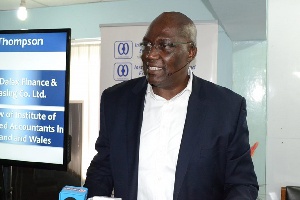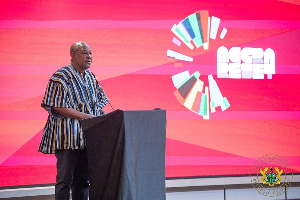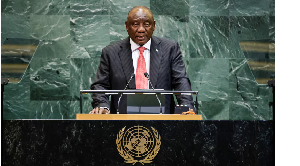Chief Executive Officer of Dalex Finance, Kenneth Thompson has said the 2018 Budget tagged as “Adwuma” budget did not provide a major drive towards export promotion and import substitution.
He said, “Ghana exports ‘air’, over 70 per cent of the containers laden with goods that come to Ghana go back empty. The cedi is overvalued causing us to experience low growth, low productivity and high unemployment.
“Faith will not fix this. Expect the cedi to go into a slide in value in 2018. My expectation is a minimum GHC5.50 to USD 1.00 by end-of-year. The cedi’s value will be harder to defend in 2018,” Mr Thompson stated in a working document obtained by the Communication for Development and Advocacy Consult (CDA Consult) in Accra.
Mr Thompson noted that: “Every so often, our governments launch ‘half hearted’ programmes to promote Made in Ghana goods. Buying Made in Ghana is a financial decision, not an emotional one. We must start to address the major imbalances in the economy with regards to our ’addiction’ to foreign goods and services.
“Part of the reason why the cedi has been relatively stable in 2017, is due to reduced demand in the real economy. Unless the combined issue, of export promotion and import substitution, is tackled, the country could be facing the ever-continuing threat of an overvalued currency and its consequential ills”.
Mr Thompson also noted that the revenue target seems overly ambitious. The budget is seeking to increase revenues by 25 per cent without any commensurate effort to increase the tax base of the economy.
“Revenue from the ambitious tax targets is targeted at spending on the pet politician projects that will strain the admirable fiscal discipline that has been exhibited in 2017. Our inability to raise these revenues could threaten the pet politician programs and credibility issues for government could begin to creep in.
“What we need to do is to increase the tax base. Let us find ways to tax the informal sector in a meaningful way through appropriate incentives which will encourage them to pay. As an example, the government could at the very least prevent the registration of any asset of significant value without showing evidence of tax payments e.g. vehicles, real estate, companies.
“If the tax base is not expanded, expect the GRA to find new ‘creative’ ways of extracting more tax from the same sources. Expect to pay relatively more tax whatever your business, even if it is because of ‘inflexible’ GRA officials who are less understanding of your ‘inventive’ tax avoidance excuses,” he said.
Mr Thompson said the agricultural sector saw a return to growth from 3 per cent in 2016 to 4.3 per cent in 2017. The conception of “Plant for Food and Jobs” programme is exciting. We are happy with the several initiatives announced for the Agricultural sector”.
Unfortunately, Mr Thompson said the ‘Army Worm’ infestation still poses significant danger to agricultural output. “The Government’s response has not been strong enough and victory is being prematurely declared whiles experts in the field are being ignored.
“What we need to understand is that the army worm intensity is naturally attenuated in the dry season and we need to be cautious. The intensity of the infection of the army-worm could possibly rise in next year’s rainy season and this time round it could be a “biblical style plague” with massive destruction,” he said.
Business News of Tuesday, 5 December 2017
Source: CDA Consult













